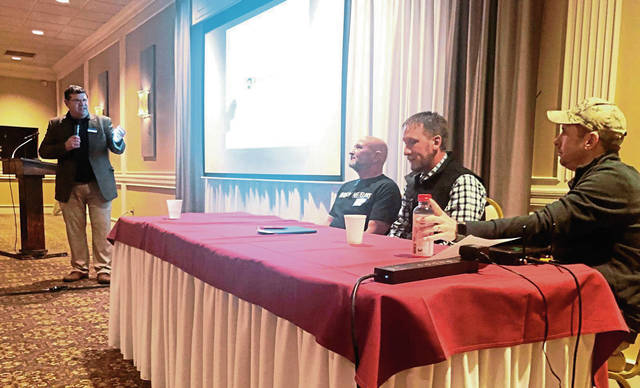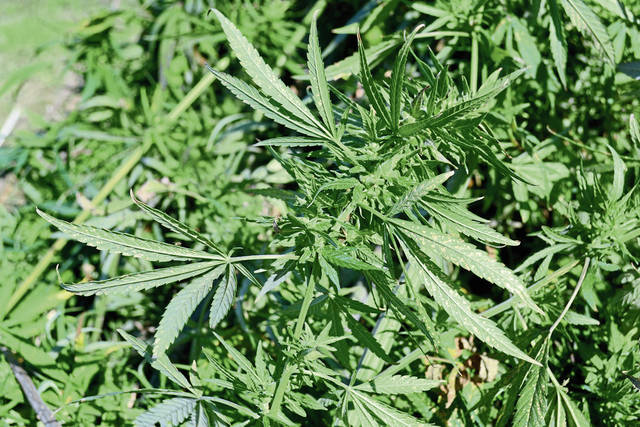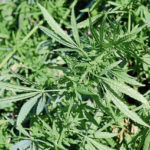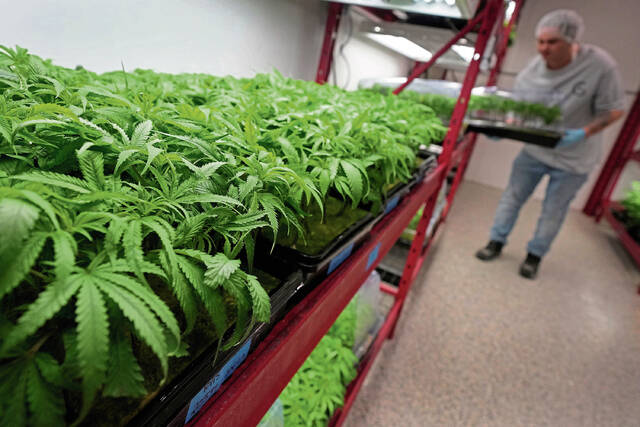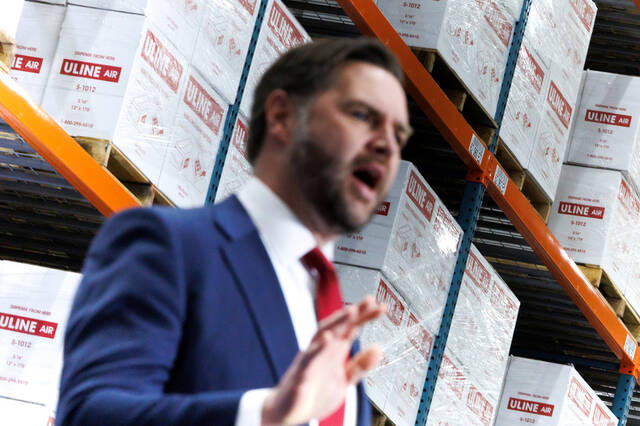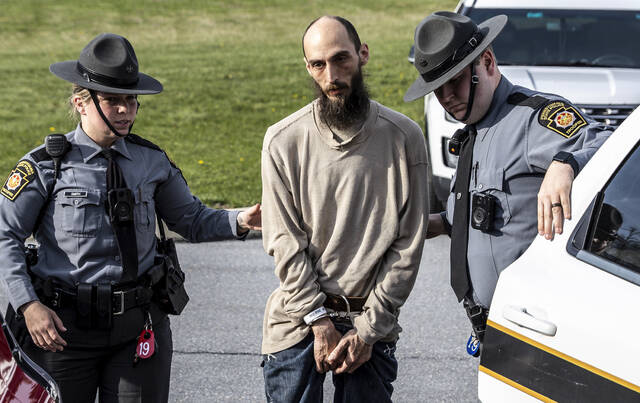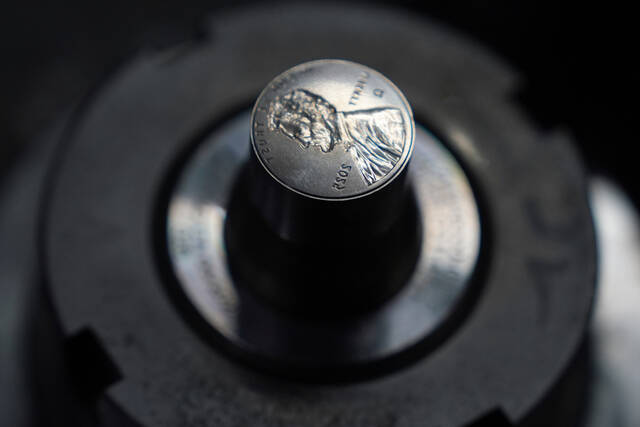Pennsylvania hemp farmers saw a lot less green than they were hoping for in 2019.
A sudden glut of supply and lack of infrastructure caused national hemp prices to plummet throughout the year.
“We had a bunch of people who threw hemp in the ground and expected at the end of the year to have a huge cash crop that was going to solve all the financial problems and financial woes that they had, and they were sadly mistaken,” said Jeff Fowler, an educator with Penn State Extension.
The price of hemp biomass peaked at $40 a pound in July, then plummeted to $10 a pound in January, Bloomberg reported.
Members of Pennsylvania’s nascent hemp industry met in Wexford on Tuesday to learn about the future of the state’s latest crop — and to voice their concerns about its future.
Penn State Extension hosted the conference, the first in Western Pennsylvania. More than 100 current and prospective farmers and processors attended.
Pennsylvania farmers were quick to start growing hemp after the 2018 federal Farm Bill legalized the crop. There were 324 registered hemp farmers growing about 4,000 acres of hemp in 2019, according to the state Department of Agriculture.
The market wasn’t ready for that much of the crop, Fowler said.
The state didn’t have enough hemp processors in 2019 to handle the amount produced, Fowler said. Many farmers were left with hemp they couldn’t sell.
“It’s nice that everybody is getting into it, but unless you pre-plan, your business is not going to do well,” said Edgardo Santillán, CEO of AgraPharm in Aliquippa. Santillán said his 2019 hemp crop will be profitable once all of the product is sold. He focused mainly on producing hemp seeds to sell to growers in other states. The continuing surge of growers means the price of seeds hasn’t been hit as hard as other hemp products, he said.
New processors, which turn hemp into CBD extracts, fibers and other products, are opening all the time, Fowler said.
“Our growers got out in front of the infrastructure, and now the infrastructure is slowly starting to catch up,” he said.
Hemp growers face many obstacles that don’t apply to traditional crops, including a lack of information, said Greg Roth, professor emeritus with Penn State’s Department of Plant Science.
“Some people have described it as a crop that’s gone from the dark side to the light side, and there’s a lot of issues with that,” he said. “There’s no research.”
Altoona hemp grower Allen Wagner wore a bright green T-shirt with the slogan “No Wacky In This Tobaccy,” a phrase he coined because people kept confusing hemp with marijuana, he said.
“It’s been illegal for 80 years, so there are few people alive who have grown this crop before,” he said.
Farmers at the conference said they were especially worried about unclear regulations regarding THC.
Hemp and marijuana are both varieties of the cannabis plant. The only difference is the amount of THC, the substance that causes marijuana’s high.
Anything with less than 0.3% THC is considered hemp. However, many environmental factors can cause THC to fluctuate. It’s fairly common for well-meaning farmers to plant hemp that grows “hot,” testing over the legal THC limit.
In 2019, farmers were required to test their own products, and the Pennsylvania Department of Agriculture randomly inspected some crops. In 2020, all farmers will need to have their hemp inspected by department-licensed inspectors.
Farmers have few reliable ways to tell what hemp varieties are likely to test “hot,” and it’s unclear how the new testing process will work, said Bobby Scherer, who owns S-W Hemp Farm in Forest County and co-founded Choice Extraction CBD, a processor in Washington.
“That’s what the question is right now, and it’s up in the air,” he said.
Attendees at the conference said they remained optimistic about the future of hemp, even if it’s not the cash crop they were hoping for.
“There’s a lot of opportunity, but there’s not going to be the huge amount of money we thought there was going to be,” said Todd Guffey, owner of Full Circle Farm in Venango County. “So, we have to do what farmers do and be creative, and do more with less.”
CORRECTION:
An earlier version of this story mistakenly identified Bobby Scherer as the owner of CBD processor Choice Extraction. Scherer co-founded the company, but it is owned by his father, Robert Scherer Jr.


